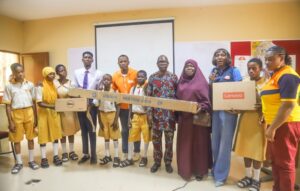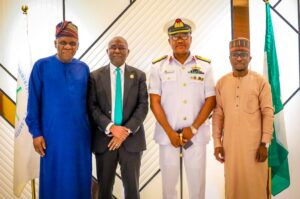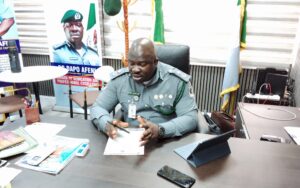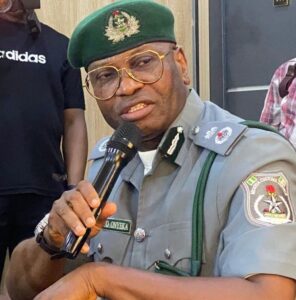Oyetola Says Blue Economy As a New Frontier Of Innovation, Prosperity and Inclusive Growth
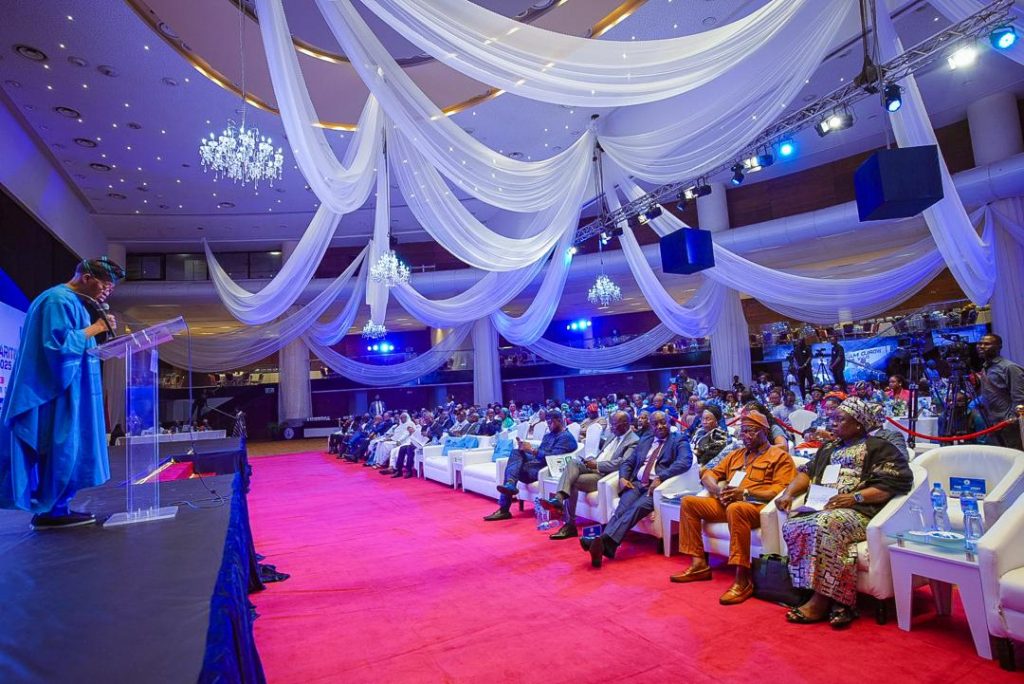
Oyetola Says Blue Economy As a New Frontier Of Innovation, Prosperity and Inclusive Growth
…as Mobereola reinforced the ocean’s importance to Nigeria’s economy and sovereignty.
By Okezie Nnadi
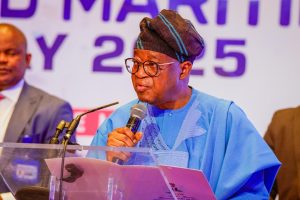
The Minister of Marine and Blue Economy, Adegboyega Oyetola, has stressed Nigeria’s bid to return to Category C of the International Maritime Organisation (IMO) Council, describing it as a vital step toward strengthening the nation’s influence in global maritime governance.
Speaking in Lagos on recently at the 2025 World Maritime Day celebration, themed “Our Ocean, Our Obligation, Our Opportunity,” Oyetola said the move would reinforce Nigeria’s role in shaping maritime decisions worldwide while positioning the sector as a driver of economic diversification beyond oil and gas.
He stressed that the country is making bold commitments to ocean stewardship, modernising port infrastructure, deepening international cooperation, and unlocking the vast opportunities of the blue economy to power sustainable growth.
Underscoring the ocean’s critical role, Oyetola noted that it covers more than 70 per cent of the earth’s surface, generates up to 80 per cent of oxygen, and supports over 80 per cent of global trade.
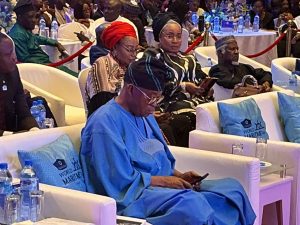
However, he cautioned that climate change, overfishing, pollution, and neglect continue to threaten its survival
The message is clear: we must be stewards, not exploiters,” he said, pledging stronger action on sustainable fishing, marine pollution, biodiversity protection, and maritime safety and security.
The minister described the blue economy as a “new frontier of innovation, prosperity and inclusive growth,” with opportunities spanning renewable energy, marine biotechnology, and sustainable aquaculture. He called for stronger collaboration with the international community, extending “a special invitation to members of the diplomatic community,” and commended agencies under his ministry for their contributions to President Bola Tinubu’s Renewed Hope Agenda.
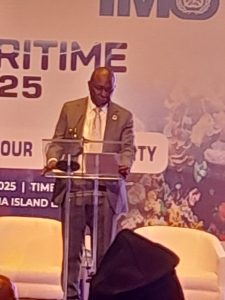
In his goodwill message, NIMASA Director-General, Dr Dayo Mobereola, reinforced the ocean’s importance to Nigeria’s economy and sovereignty.
“For us, the ocean is the lifeblood of our nation, the gateway for over 80 per cent of our trade, and a reservoir of immense biodiversity and resources. Its health dictates our climate, its security defines our sovereignty, and its potential holds the key to our future,” he said.
Mobereola highlighted Nigeria’s Marine Litter and Plastic Action Plan, alongside efforts to implement IMO frameworks for a healthy marine environment. He also pressed for fairness in the global transition to net-zero emissions.
“We are strongly advocating for a just and equitable transition to net-zero Greenhouse Gas emissions for Sub-Saharan Africa, Small Island Developing States and Least Developed Countries to ensure fairness and social justice,” he stated.
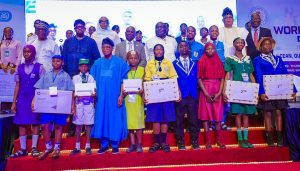
On security, the NIMASA boss pointed to the Deep Blue Project as “a game changer in addressing maritime security in Nigeria and the Gulf of Guinea.” He outlined investment opportunities in fisheries, aquaculture, renewable energy, shipbuilding, tourism, and port infrastructure, but warned that funding shortfalls remain
According to the World Bank, Sustainable Development Goal 14 (Life Below Water) is one of the most poorly funded SDGs, with an annual financing gap of approximately $150 billion. Public funding will never be enough to close the gaps,” Mobereola said, urging private sector participation supported by incentives and de-risking mechanisms.
The Managing Director of the Nigerian Ports Authority (NPA), Dr Abubakar Dantsoho, represented by the Executive Director, Marine and Operations, Engr. Olalekan Badmus, also reinforced the call for collective action to protect the ocean. He described the ocean as the backbone of global trade and a critical driver of economic development, noting that over 90 per cent of global trade—accounting for nearly half of the world’s economic output—depends on maritime transport.
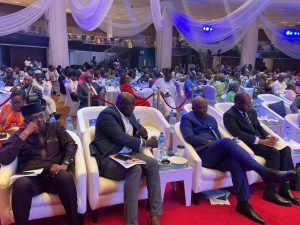
“This theme aptly captures the increased responsibility placed on each and everyone of us as stakeholders in the maritime industry to take frontline ownership of the ocean, on whose sustainability the very sustenance of humanity rests,” he said.
While acknowledging studies showing that sea transport is the most environmentally friendly of all transport modes, Dantsoho stressed the need for deliberate efforts to make ports eco-friendlier.
“Beyond fanfare, there is need for every stakeholder here to rise from this celebration with a stronger commitment to take actions that make the ocean cleaner,” he charged.
“Indeed, making global port operations eco-friendlier and actualising the other noble objectives of the World Ports Sustainability Program rests heavily on our shoulders as maritime stakeholders. Although it is good to know that sea transport is the most environmentally friendly of all the transport forms, it is much more important to acknowledge that we owe posterity a duty to not only continually formulate and implement policies that protect the ocean, but to maintain as individuals and institutions a behavioural pattern that places the highest premium on protecting the ocean.”
Quoting former U.S. President John F. Kennedy, he reminded participants of the enduring connection between humanity and the sea.
He said: “We have salt in our blood, in our sweat, in our tears. We are tied to the ocean,” he said. “Indeed, as we make up our minds to clean up the ocean for sustainability, we are making up our minds to clean up ourselves.”
Both Oyetola and other speakers stressed that safeguarding the ocean is a shared responsibility and called on government, industry and communities to treat the ocean as a national trust to be sustainably managed.
The ocean is our shared legacy. Our obligation is to safeguard it. Our opportunity is to transform it for the benefit of generations to come,” Oyetola urged.
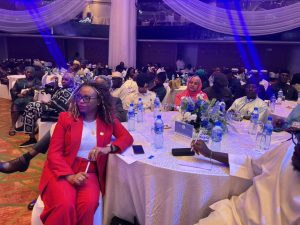
Mobereola echoed this sentiment, saying, “All of us seated here have different roles to play in safeguarding our ocean, and we must work together whether as government, industry or community. We are all partners in progress.”
The 2025 World Maritime Day celebration in Lagos drew maritime stakeholders, diplomats, and industry leaders, underscoring the country’s ambition to strengthen its blue economy, enhance maritime security, and assert its leadership on the global maritime stage.
